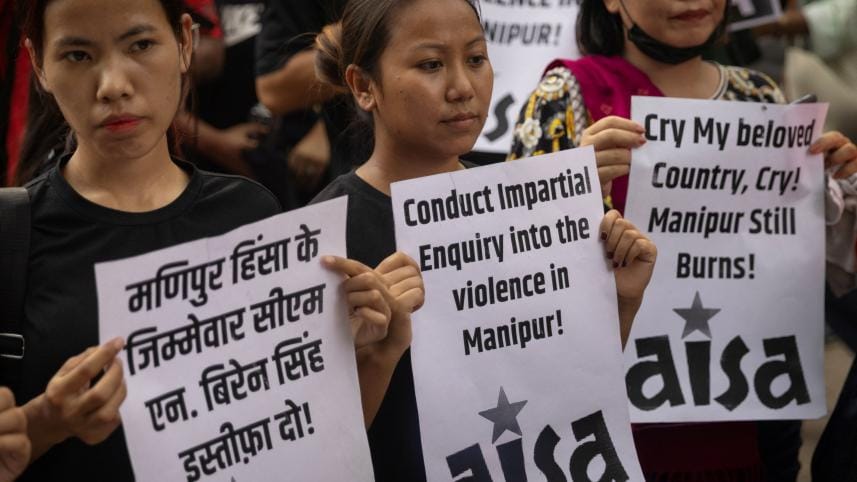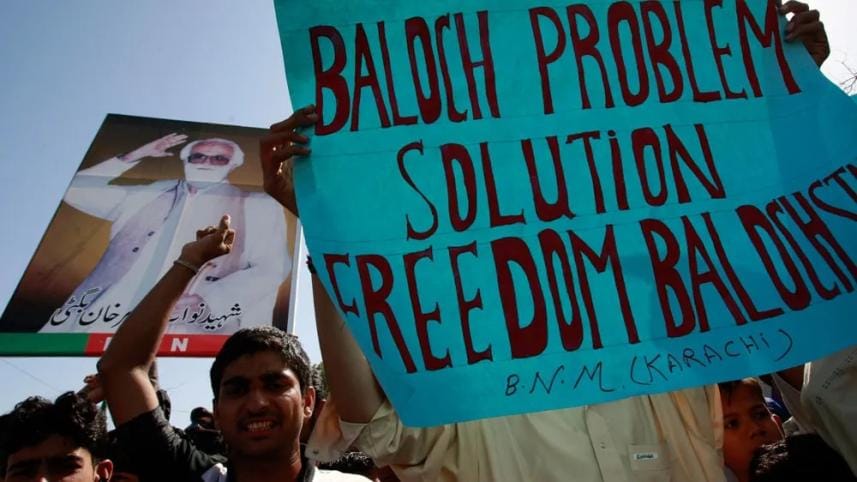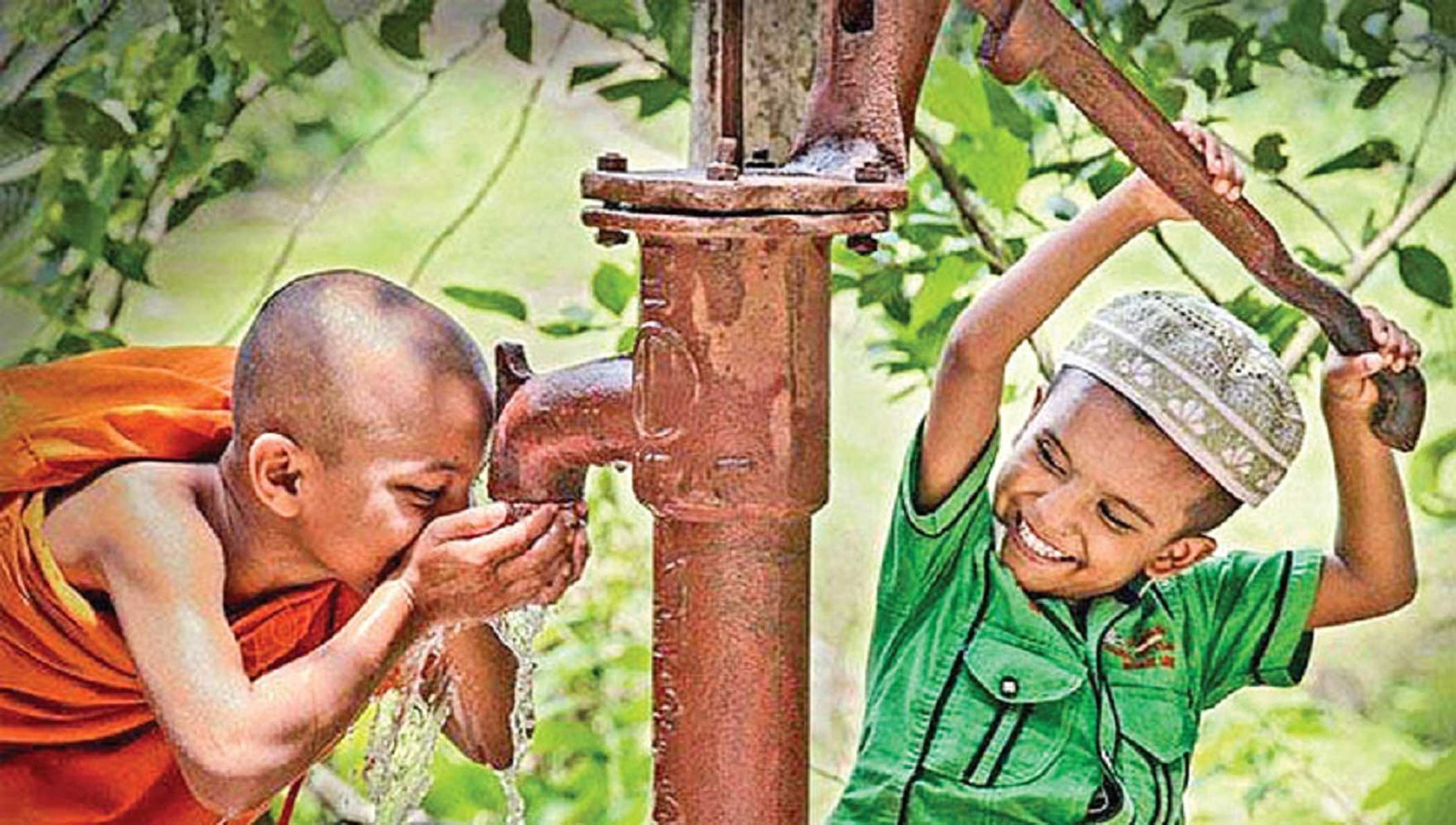Every country has its own Manipur

News of the troubles in the Indian state of Manipur has spread beyond Asia to Europe and the US. It is no longer a simple issue. But many have been surprised to see that it took the Indian prime minister almost 80 days to share his views on the violence in Manipur. The reason behind this can be hypothesised.
Out of the 543 seats of the Lok Sabha, Manipur only has two. The northeastern states (eight, including Sikkim) have a total of just 25 seats in the Lok Sabha, which translates to less than five percent voting power, even though these states are home to a couple dozen different peoples. The question is: with so little political power, how can these populations obligate national-level policymakers to address their problems?
There are many 'invisible Manipurs' in South and Southeast Asia
This is not a problem limited to the northeast of India. Neither is it limited to India itself. Similar situations can be observed all over South and Southeast Asia.
Consider the Chin state neighbouring Manipur. Out of the 664 seats in Myanmar's bicameral parliament, the Chin state only has 21. Similar realities are faced by the Kachin, Karen, and Rakhine in different states of the country. The country's military and non-military authority has always been strictly under the control of the ethnic majority Bamars. Myanmar is a stark example of what happens when a country of vast ethnic diversity is subjected to the totalitarian dominance of one ethnicity.
In Bangladesh's parliament, too, the number of non-Bangalee representatives is very low. Usually, only three or four members out of the 300 are directly elected, and a further one or two get into the 50 seats reserved for women. There is little scope for minority peoples to exert influence on national-level politics.
In Sri Lanka, the Tamils are in a similar state. A Tamil being elected as president in the current presidential system is not something the Singhalese are ready to accept easily. In the 225-member parliament, there are only 10 members of the TNA (Tamil National Alliance). Out of the nine states of Sri Lanka, the Tamil have complete control over only one state in the north.
Out of the 226 seats in Pakistan's national assembly that are filled by direct elections, the Baloch only have 16, whereas Punjab has 141 seats. The logic behind such discrepancy is population variance. But the immediate result of it is that, in policymaking debates and polls, minorities are weakened. Even after 75 years of independence, the Baloch voice has been kept quiet in a systematic way. It is perhaps natural for separatism to take root in a society such as this. In fact, what's unnatural is covering up their sorrow or forcefully stifling its expression.
What can these minorities do if the majority in power in these countries are not able to provide durable solutions to their problems? Given the internal political structures, the minorities are not in a situation where they can force the power brokers to listen to them. There are no regional structures, either, through which all ethnic minorities in a country can sit together and voice their issues. Perhaps such a system could have helped the minorities gain more visibility.
Bhutan has been known as a small nation of happy citizens in this region. That is how they have been portrayed. But a large part of the ethnic minority, the Nepali-speaking community in Bhutan, has been driven out of their homes, forced to take refuge elsewhere for long.
The question is, how much longer must the Nepalese in Bhutan, the Tamil in Sri Lanka, the Baloch in Pakistan or the ethnic minorities in India, Bangladesh, and Myanmar wait for their problems to be solved?
This question can also be framed like so: what can these minorities do if the majority in power in these countries are not able to provide durable solutions to their problems? Given the internal political structures, the minorities are not in a situation where they can force the power brokers to listen to them. There are no regional structures, either, through which all ethnic minorities in a country can sit together and voice their issues. Perhaps such a system could have helped the minorities gain more visibility.
'Identity politics' is a dark chasm
Many have been asking what the Indian government can do for the Kuki people in Manipur. But the real question should be: can they do anything at all?
The answer is both yes and no.
The Manipur government and the New Delhi government can definitely increase security for the Kuki. They will certainly try to do that. One reason behind this not being done over the last three months is the lack of cooperation by the Meitei in Manipur. The other reason is the geography of Northeast India.
The Kuki now want to break away from Manipur and form their own state. There are major roadblocks to the Indian government accepting this demand. Firstly, the Kuki live in the mountainous regions surrounding Manipur. Its capital, Imphal, is mainly inhabited by the Meitei. So how can this complicated geography be split in a way that would satisfy both parties?
Secondly, the Naga people from neighbouring Nagaland also have claims upon the Kuki regions. The Naga want the Kuki regions to be included within their desired state of "Nagalim." In their view, those are ancient Naga regions. This claim isn't entirely false. The Naga outnumber Kukis in Manipur. The one common factor between them is that both practise Christianity. Perhaps this is why, in the current conflict between the Hindu Meitei and the Kuki, the Naga people are sympathising with the latter. But in the past, the Naga and Kuki have also been involved in armed struggles, with many killed and wounded on both sides. All of this means that splitting Manipur in two regions, one each for the Meitei and the Kuki, won't really resolve the current issue. Splitting it into two won't be easy, either. But be it today or tomorrow, this will eventually happen. Despite living side-by-side for centuries, the Meitei and Kuki consider each other to be enemies, to such an extent that they can't be kept in the same state under the same administration for long. As a result, the face of Manipur will change.
In the past, many states in India have been formed in this way. But that did not result in the expected level of harmony between communities. For example, the mountainous regions of the Khasi, the Jaintia, and the Garo of Assam were once put together to form Meghalaya. In this Bangladesh-adjacent state, the Khasi make up half of the population. Among the rest, the Garo and the Jaintia are the main tribal groups. Now, the Garo want a separate state within Meghalaya. Until that happens, some Garo organisations are demanding that Tura be named the winter capital of the state. The basis of this demand is that the actual capital of the state, Shillong, is mainly a Khasi region. On the other hand, in response to the Garo's demand of making Tura the winter capital for six months each year, the Jaintia have begun demanding that their main city, Jowai, be named the spring capital for a few months every year, too. This chain of demands reveals that even though Assam was split to form the new state of Meghalaya, the ethnic harmony has not been achieved in the region.
This is the dark chasm of identity politics. You can keep moving forward, yet never reach the light. But identity politics is a stark reality surrounding us. We all have to face it eventually.
This crisis was mainly created during the era of colonial rule. The British took over the lands of many small ethnic groups and abstracted their loyalty to the crown. They kept these regions as "princely states," without compromising their cultural independence. But the British left behind a catastrophic situation when they left after nearly two centuries. Without thinking of future outcomes, they handed over the responsibility of all the ethnic minorities in vast South Asia to the ethnic majorities. But even this could have been a non-issue, had independent Myanmar, India, Pakistan, or Sri Lanka built nations where the cultural, religious, and citizen rights of minorities were protected under the certainty of sovereignty. But this has rarely happened.

Manipur is the symptom of a deep, hidden illness
After 1947, the majority elites of the independent countries in this region have always tried to establish centralised states instead of decentralising power. The natural resources of these regions have been handed over to national and foreign businesses through various means. In trying to make this process as "seamless" as possible, a tactic of setting one small minority against another was employed. Almost always and everywhere, a group of obedient politicians and intellectuals is created from among the minorities to safeguard the interests of the majority.
There are two other procedures that are implemented to create cultural hegemony in these regions. Firstly, there's the prevalence of tourism; the second is encouraging various religious organisations to ramp up their operation. At first glance, these activities may seem innocuous. But these efforts have done a lot to disrupt the peace among the minority communities in South and Southeast Asia. Almost all such regions are now more or less under the hegemony of outsiders, and the culture that these outsiders bring. These invisible interferences have happened in a variety of ways over the last 70-80 years. The counter reaction has been a destructive identity-driven politics, which is hateful and conservative by nature. But every ethnic minority seems to think that this will be their salvation.
This is what we have been seeing in Manipur. A lot can be learned from this crisis if it is viewed as a symbolic event in South and Southeast Asia. The Meitei flatlands and the Kuki mountains have been at peace for centuries, and now they are stooping to lows as heinous as stripping women of the other community naked and exhibiting them in public. If we simply criticise New Delhi because of this incident, we won't be able to make progress. Instead, we must try to figure out how these minority communities got here, and how they might get out of this situation.
The answer to that is that the majorities living in the political and cultural epicentres of many countries in the world have created this reactionary situation. This was not a problem that materialised in an instant. This has been established through the use of trickery and tactics over decades. The way to freedom from this is an overhaul of the existing state structure, a complete decentralisation of the administration. Dialogue must take place with the minorities. The dominance of cultural and political epicentres that have been around since the colonial era must be dismantled. In reality, South Asia or Southeast Asia is not ready for that. One country looks at another country's 'Manipur' and bathes in secret schadenfreude. But none of them understand one thing: they all suffer from this deep, secret illness.
Translated by Azmin Azran.
Altaf Parvez is a researcher of history.




 For all latest news, follow The Daily Star's Google News channel.
For all latest news, follow The Daily Star's Google News channel. 


Comments